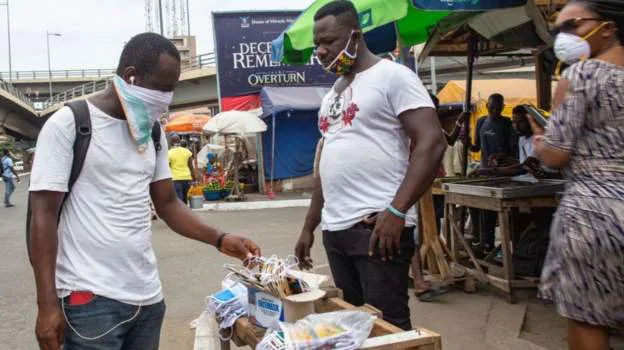Ghana has adopted “pool testing” of samples to maximise the use of coronavirus test kits that are in short supply globally.
It involves using a single test on 10 samples combined. If there is a positive result then the entire batch is tested individually to identify the infected sample.
Scientists believe that the method is a valuable time saver in the fight against Covid-19 and has seen Ghana test more than 100,000 samples so far.
But it is only efficient while Ghana’s infection rates remain low and the accuracy of the method has been disputed in some quarters.
If a majority of the pooled samples test positive then a huge number of tests have to be rerun “and you lose the benefit of the efficiency of doing them concurrently”, says Nana Kofi Quakyi, a research fellow at New York University’s School of Public Health.
Germany and India have adopted similar methods in testing for the virus – allowing them to expand their screening capacity and improve detection in communities.
Ghana’s medical drones have being deployed to deliver Covid-19 samples directly to laboratories – the first country to do so in the world.
This enables authorities to identify and isolate infected persons quickly and contain the spread of the virus.
Ghana has recorded 2,719 cases of coronavirus and 18 deaths, according to Africa CDC.
BBC






2 Comments